NDIS management plans: a comparison breakdown
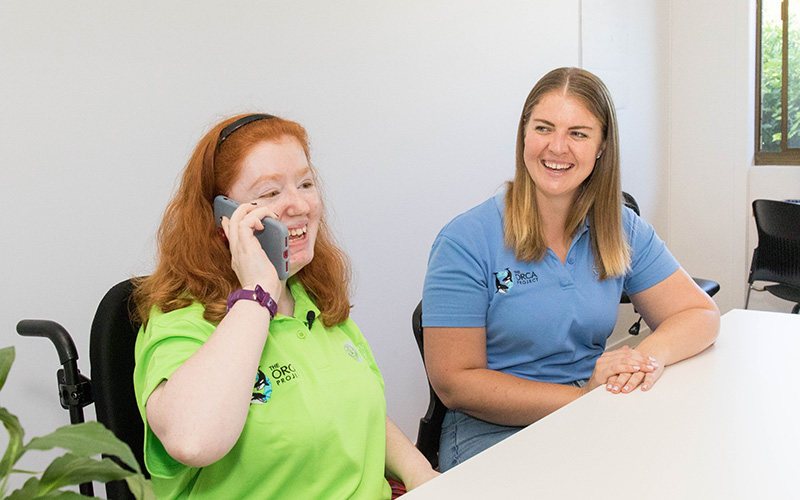
Image: Phone practice at the ORCA Project. a NDIS post-school work training for people with disabilities, aged 17-21 years old, in Brisbane
The NDIA (National Disability Insurance Agency) offers 3 different ways for you to manage your NDIS funding, including choosing providers and paying invoices. They are called NDIS Management Plans.
To help you make an informed decision about the plan that best suits your specific circumstances, we have broken down the key differences between these 3 plans.
Key differences
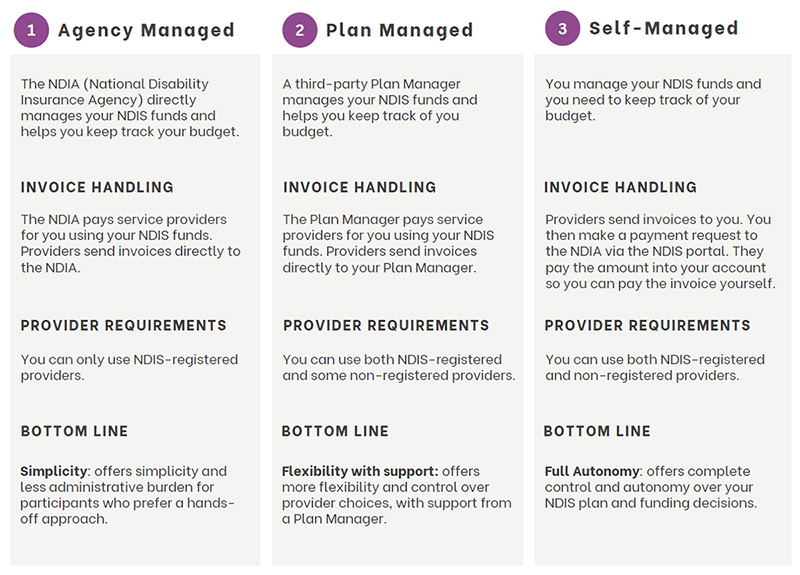
Decision making
Choosing the right NDIS management plan depends on:
- Your preferences for control and flexibility;
- How comfortable you are with managing your finances; and
- How much time and effort you want to invest in handling the administrative tasks.
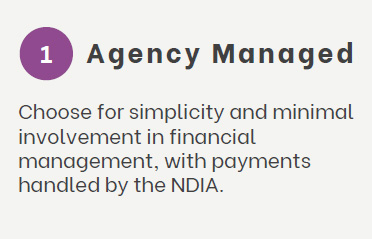
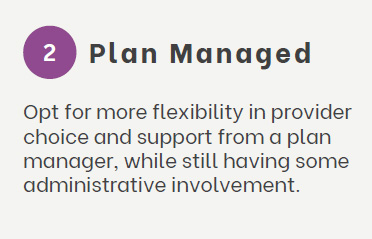
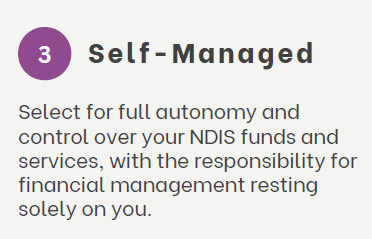
Other considerations
- You can also choose a combination of the three options. For example you may choose to self-manage one part of your plan to start with and have the rest managed by the NDIA.
- You have sole responsibility for the quality of services you choose when engaging non-NDIS registered providers. Registered providers goes through a quality assurance process to become registered with the NDIS.
1. Agency managed
- Limited provider choice. When using only NDIS-registered providers, options for specialised, local and regional services can be limited.
- Potential delays. Response times from the NDIA can vary. Payments are usually fairly quick, however some participants report delays in payments or support. Delays will happen if you don’t add the new provider to your My Provider list, in your NDIS account.
2. Plan Managed
- Support and guidance. Plan managers typically offer more personalized support and direct communication channels, such as phone or email. They help you make the most of your funding and assist with coordinating services from multiple providers.
- Limited provider choice. While you can use non-registered providers, there are still some limitations, especially if you need a provider who doesn’t meet the plan manager’s requirements.
- Potential fees. Plan managers may charge fees for their services. There will be additional funding specifically to pay your Plan Manager.
- Potential delays. If there are delays or issues with the plan manager, it can impact the timely payment of your providers.
3. Self-Managed
- Maximum flexibility. You are not restricted to NDIS-registered providers, which gives you the broadest range of services. However, you need to do your own research to ensure providers are reliable and offer quality services. If not careful, you might also end up paying more than the NDIS price guide.
- Full control over your budget and your funds. You can manage your plan, funds and claims via the NDIS’ Myplace Portal (you will need a MyGov account).
- Administrative load. You’re responsible for all the paperwork, paying invoices, claiming invoices, tracking expenses, managing budgets, and ensuring everything aligns with your NDIS plan. It can be time-consuming if you use multiple providers often. You need a good understanding of the NDIS and financial management.
- Risk of errors. If you’re not careful, mistakes could lead to funding issues or non-compliance with NDIS requirements.
3. Local area coordinator
Regardless of the type of NDIS Management Plan, you can have access to a Local Area Coordinator (LAC). The NDIA will assign one to most participants, depending on location and specific arrangements in your area.
The coordinator will:
- Create, implement and review your NDIS plan
- Inform on supports and services you can access
- Connect you with local services and community groups
- Support you in managing your NDIS plan.
If you're unsure whether you have an assigned LAC or if you need one, you can contact the NDIA directly on 1800 800 110 or via the NDIS website.
Related article
A few simple questions to help you pick the best NDIS Plan Management for you.
Disability and NDIS services at WMQ
Work with a single trusted NDIS provider to achieve your goals, no matter how varied and diverse they are. Call us on 1800 448 448 or contact us online.
